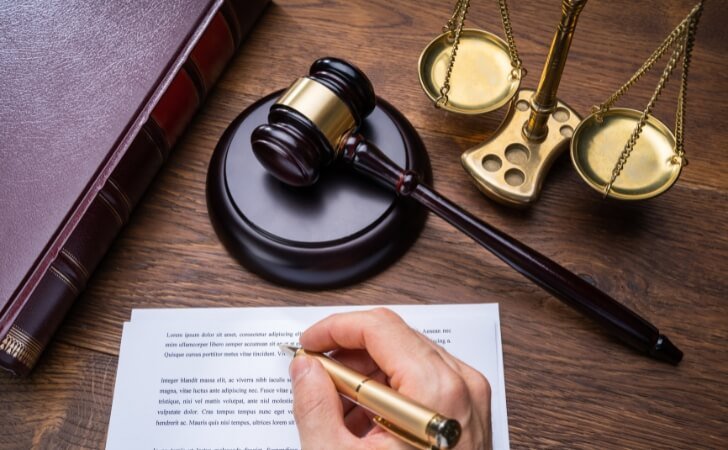AFFILIATE DISCLOSURE
This post may contain affiliate links. An affiliate means Escribr may earn referral fees if you make a purchase through our link without any extra cost to you. It helps to keep this blog afloat. Thanks for your support!
Did you know that by visiting this blog, you are doing good in the world? READ THIS.
In this blog post, we meet Chrisel Pacis, a registered nurse who has embarked on a new and exciting chapter as a legal transcriptionist.
Chrisel’s journey took her from the demanding world of bedside nursing to the stimulating field of legal transcription, a surprising yet rewarding career shift.
A Nurse’s Journey to Legal Transcription
Chrisel, a graduate with a Bachelor of Nursing degree, found herself wanting a change after a couple of years working as a registered nurse during the pandemic.
The intensity of the healthcare environment during that time motivated her to seek a new opportunity.
She discovered medical scribing, a work-from-home profession that allowed her to utilize her medical knowledge in a different setting.
As a medical scribe, Chrisel would type doctor-patient conversations during appointments, essentially creating a medical record of the interaction.
However, Chrisel’s curiosity led her to explore the field of legal transcription.
Enrolling in a legal transcription course by Linda Wilson, Chrisel found herself captivated by the variety and intellectual challenge this field offered, compared to the more routine nature of medical scribing.
Leveraging Medical Expertise in Legal Transcription
Chrisel aspires to specialize in medical legal transcription.
Her background as a registered nurse gives her a significant advantage in understanding medical terminology and procedures.
This expertise is highly sought after in legal transcription, particularly for tasks like transcribing doctor depositions, medical malpractice cases, and other legal matters involving medical records.
Finding Success in Legal Transcription
Chrisel’s goal is to secure a full-time, permanent legal transcription position.
With her nursing background, her legal transcription training, and her eagerness to learn, she is well-positioned for success in this exciting field.
The Interview
So my name is Chrisel, Chrisel Pacis. I actually reside in Canada at the moment. I moved here from the Philippines.
I’m 26 years old. I am a Bachelor of Nursing graduate. I actually graduated during the pandemic, so that was my educational background.
But, yeah, so that’s me.
Working as a Nurse
At the height of the pandemic, I worked as an RN for the first couple years. It was not the best timing, so I wanted to step back from the field for a bit.
And I found becoming a medical scribe, still in the medical field, but a little like work from home. It’s a little more less intense, I would say.
And because I had medical knowledge, it was easy to pick up terminology and I could understand conversations with the doctors and patients easier.
It was just the whole scribing thing of typing was new to me, but I’ve picked that up for about a year now, I’d say.
I’ve been scribing since last year.
Scribing is Transcription
So scribing is basically transcription. For my work though, we work with doctors and patients live.
So I sit with them in their office, kind of listening in to the doctor’s appointment as I type.
And most of my doctors do live dictation, so I got a lot of practice with typing real, real fast with that.
Working as a Medical Scribe
So I work with American doctors.
Being in Canada, we are virtual scribes.
So they have a phone or machine with them that connects with us to our app and our computer here, wherever we’re working from home.
They bring us with them to all the appointments and then we sort of just listen in.
We ask the patient, “Oh, there’s a scribe listening in. Are you okay with them taking down notes?”
Working from Home
Oh, I love it. I love it.
I didn’t get the chance during the pandemic.
I was on the floor with the whole suit, face mask, everything, and I isolated myself the whole first two years.
And now I love working from home.
It’s different, it’s very different, but I like taking a break from that.
Discovering Legal Transcription
So since I started medical scribing, I’ve sort of put nursing in the back end.
So I’m not really working as a nurse anymore. And that’s when I came across legal transcription.
I was like, “Oh, I didn’t know there were other facets to this.”
And then going through your course and you talked about there was general transcription and the law enforcement, I was like, “Whoa, there’s other things to it that I didn’t know.”
So I was so excited taking your course and learning all these things.
Medical is Helpful in Legal
I didn’t realize coming into transcription that my medical background would be helpful at all because I thought it was very different.
But definitely knowing the terminology, the spelling and all that, it gives you an advantage to listening in as opposed to someone who’s, you know.
In-Depth Learning with Learn to Transcribe Academy
Yeah, like I said, it was definitely more in-depth than any training I got from medical scribing.
The way you gave examples of depositions helped a lot.
I took a lot of notes based off of those because there’s, you know, theory and then application. That’s two different things.
Because scribing, we had an onboarding, but it wasn’t as in-depth as your course.
It took me a couple months to get through, but it was good because I didn’t, yeah, I love the feedback.
I love that you got back to me so quickly.
And with that, I was hoping, I thought to myself, I could do this for a long time.
Like, I really enjoyed it and I found myself with my headphones just typing and not even realizing the time would just go by.
And I thought, wow, this was something I never felt with nursing where I felt so connected to the work as different as that is, you know.
So I’m hoping this would be like my long-term goal of working on getting better.
Why This Matters
Chrisel’s story highlights several key takeaways for those considering a career change or exploring new opportunities within the legal field.
- Healthcare experience is valuable: A background in healthcare, like nursing, is a goldmine for legal transcription, especially in medical legal transcription (doctor depositions, malpractice cases, et cetera).
- Legal transcription offers variety and challenge: Legal transcription offers a work-from-home environment with a high degree of variety and intellectual stimulation.
- Specialization is an option: Legal transcription offers a path to specialize in various areas, allowing you to tailor your skills to a specific legal niche.
Here are some exciting options to consider:
- Medical Legal Transcription: As Chrisel exemplifies, a background in healthcare makes you a perfect candidate for this specialization. You’ll be transcribing doctor depositions, medical malpractice cases, and other legal matters involving medical records.
- Criminal Justice Transcription: If you’re fascinated by courtroom proceedings, this specialization might be your calling. Here, you’ll transcribe police interviews, witness statements, and court hearings related to criminal cases.
- Deposition Transcription: Depositions are out-of-court testimonies where lawyers question witnesses. Deposition transcripts are crucial for trials, and specializing in this area requires top-notch accuracy and the ability to handle fast-paced dialogue.
- Corporate Legal Transcription: This specialization involves transcribing meetings, boardroom discussions, contracts, and other legal documents related to businesses and corporations. Here, strong knowledge of business terminology and legal jargon is essential.
- Bankruptcy Transcription: Bankruptcy proceedings involve complex financial legalese. If you have an aptitude for numbers and legal terminology, specializing in bankruptcy transcription can be a rewarding path.
Remember, this is not an exhaustive list. The legal field is vast, and new areas of specialization may emerge. The key takeaway is that legal transcription allows you to develop expertise in a specific legal area that aligns with your interests and skills.
If you are considering a career change or are interested in a stimulating work-from-home opportunity, legal transcription might be a perfect fit.
With the right training and a drive to learn, you can follow in Chrisel’s footsteps and forge a successful path in this dynamic field.









